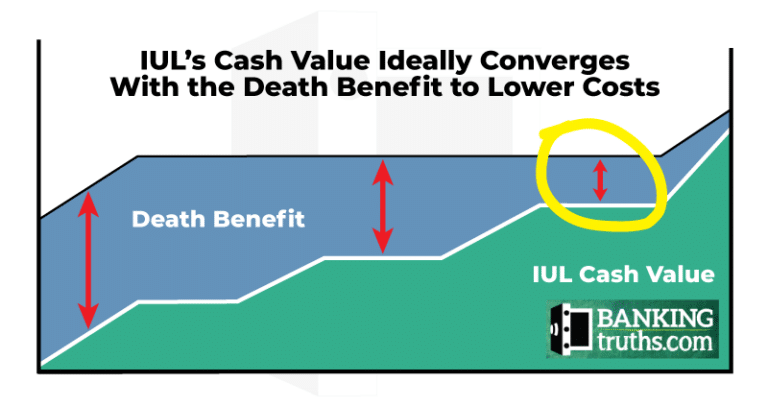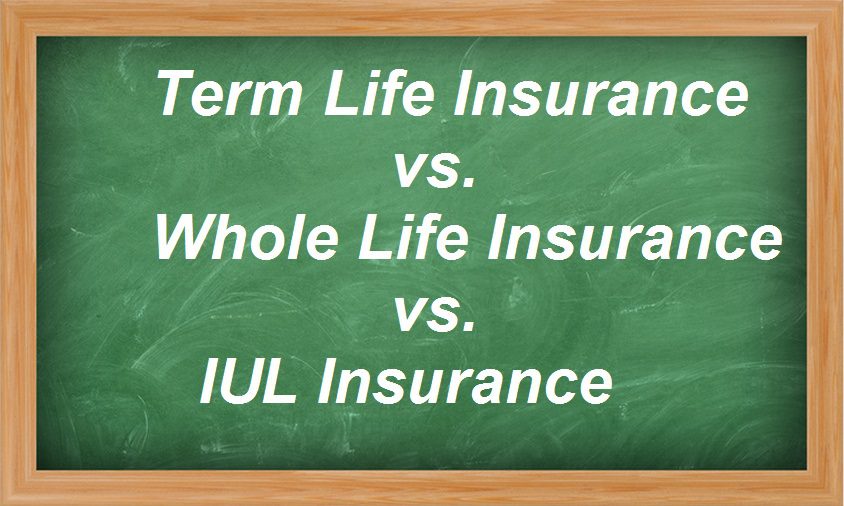All Categories
Featured
Table of Contents
1), frequently in an attempt to defeat their category standards. This is a straw guy debate, and one IUL people enjoy to make. Do they contrast the IUL to something like the Vanguard Total Amount Stock Exchange Fund Admiral Show no lots, a cost ratio (ER) of 5 basis factors, a turnover proportion of 4.3%, and a phenomenal tax-efficient record of circulations? No, they compare it to some dreadful actively managed fund with an 8% lots, a 2% EMERGENCY ROOM, an 80% turnover proportion, and a terrible record of short-term resources gain distributions.
Shared funds frequently make annual taxable distributions to fund proprietors, also when the value of their fund has actually gone down in worth. Shared funds not only call for earnings coverage (and the resulting annual tax) when the shared fund is increasing in value, but can additionally impose earnings tax obligations in a year when the fund has actually dropped in worth.
You can tax-manage the fund, collecting losses and gains in order to minimize taxable circulations to the financiers, however that isn't in some way going to transform the reported return of the fund. The ownership of shared funds might call for the common fund proprietor to pay projected tax obligations (iul training).

IULs are very easy to place to ensure that, at the owner's death, the beneficiary is exempt to either income or inheritance tax. The same tax obligation decrease techniques do not function virtually too with mutual funds. There are many, usually pricey, tax obligation traps linked with the moment trading of shared fund shares, catches that do not relate to indexed life Insurance policy.
Chances aren't really high that you're mosting likely to undergo the AMT because of your common fund circulations if you aren't without them. The rest of this one is half-truths at finest. For circumstances, while it holds true that there is no earnings tax obligation as a result of your heirs when they acquire the earnings of your IUL plan, it is additionally real that there is no revenue tax obligation due to your beneficiaries when they acquire a common fund in a taxed account from you.
What Is Universal Life Insurance With Living Benefits
The federal inheritance tax exemption limit mores than $10 Million for a couple, and expanding every year with rising cost of living. It's a non-issue for the vast majority of doctors, a lot less the rest of America. There are better methods to stay clear of estate tax issues than buying financial investments with reduced returns. Common funds may create revenue taxation of Social Security benefits.

The development within the IUL is tax-deferred and might be taken as free of tax revenue by means of financings. The policy proprietor (vs. the mutual fund supervisor) is in control of his/her reportable earnings, hence allowing them to lower and even get rid of the taxes of their Social Safety advantages. This one is wonderful.
Here's another marginal concern. It holds true if you acquire a mutual fund for claim $10 per share simply prior to the circulation date, and it disperses a $0.50 circulation, you are then mosting likely to owe taxes (possibly 7-10 cents per share) although that you haven't yet had any kind of gains.
In the end, it's really regarding the after-tax return, not how much you pay in taxes. You're likewise possibly going to have even more money after paying those taxes. The record-keeping requirements for having shared funds are dramatically extra complicated.
With an IUL, one's records are kept by the insurance provider, copies of yearly declarations are sent by mail to the owner, and circulations (if any) are totaled and reported at year end. This is also type of silly. Obviously you must keep your tax obligation documents in situation of an audit.
Universal Life Insurance Instant Quote
Barely a factor to buy life insurance policy. Shared funds are generally part of a decedent's probated estate.
Additionally, they undergo the hold-ups and expenses of probate. The earnings of the IUL plan, on the various other hand, is constantly a non-probate distribution that passes outside of probate directly to one's named beneficiaries, and is consequently exempt to one's posthumous creditors, unwanted public disclosure, or similar hold-ups and prices.
We covered this one under # 7, however simply to recap, if you have a taxable common fund account, you have to put it in a revocable trust fund (and even much easier, use the Transfer on Fatality classification) in order to prevent probate. Medicaid disqualification and lifetime revenue. An IUL can provide their proprietors with a stream of revenue for their entire life time, despite for how long they live.

This is helpful when arranging one's events, and transforming assets to revenue before an assisted living facility confinement. Shared funds can not be transformed in a comparable fashion, and are nearly constantly taken into consideration countable Medicaid possessions. This is another foolish one promoting that inadequate individuals (you recognize, the ones who need Medicaid, a government program for the inadequate, to pay for their retirement home) need to use IUL rather of common funds.
Universal Vs Whole Life Comparison
And life insurance policy looks terrible when contrasted rather against a retirement account. Second, individuals who have money to buy IUL over and beyond their pension are going to need to be horrible at handling cash in order to ever before get approved for Medicaid to pay for their assisted living facility costs.
Chronic and incurable illness cyclist. All plans will certainly allow a proprietor's easy access to cash money from their policy, typically waiving any type of abandonment penalties when such individuals endure a severe illness, require at-home treatment, or become confined to a retirement home. Common funds do not supply a similar waiver when contingent deferred sales fees still use to a mutual fund account whose owner requires to market some shares to money the prices of such a keep.
Universal Underwriters Life Insurance
You get to pay even more for that advantage (biker) with an insurance coverage plan. Indexed universal life insurance offers death benefits to the beneficiaries of the IUL proprietors, and neither the proprietor neither the beneficiary can ever before lose cash due to a down market.
Currently, ask yourself, do you actually need or want a death benefit? I definitely don't need one after I get to economic self-reliance. Do I want one? I expect if it were cheap sufficient. Obviously, it isn't low-cost. Generally, a purchaser of life insurance policy pays for the true cost of the life insurance policy advantage, plus the costs of the policy, plus the revenues of the insurer.
Max Funded Indexed Universal Life Insurance
I'm not entirely certain why Mr. Morais threw in the entire "you can not shed money" again below as it was covered rather well in # 1. He just wanted to repeat the ideal selling factor for these points I mean. Again, you do not lose small dollars, yet you can shed actual dollars, in addition to face severe possibility expense because of reduced returns.
:max_bytes(150000):strip_icc()/Pros-and-cons-indexed-universal-life-insurance_final-1b83c0fd52154eb69edd47f99ab8927a.png)
An indexed universal life insurance coverage policy owner might trade their policy for a completely various plan without causing income tax obligations. A common fund proprietor can stagnate funds from one shared fund business to another without selling his shares at the previous (therefore triggering a taxable event), and repurchasing new shares at the latter, usually based on sales costs at both.
While it is true that you can exchange one insurance plan for an additional, the reason that people do this is that the first one is such an awful policy that even after acquiring a brand-new one and going through the very early, negative return years, you'll still come out ahead. If they were offered the appropriate policy the first time, they should not have any wish to ever before exchange it and undergo the very early, adverse return years once more.
Table of Contents
Latest Posts
Eiul Life Insurance
Aig Index Universal Life Insurance
Universal Term Life
More
Latest Posts
Eiul Life Insurance
Aig Index Universal Life Insurance
Universal Term Life